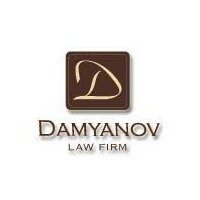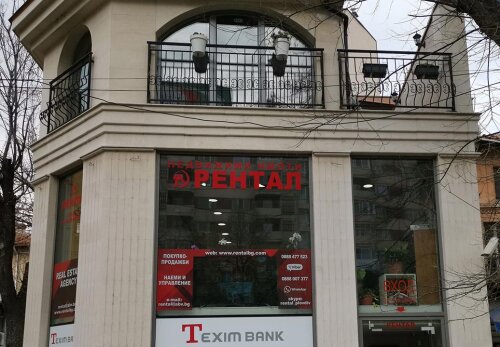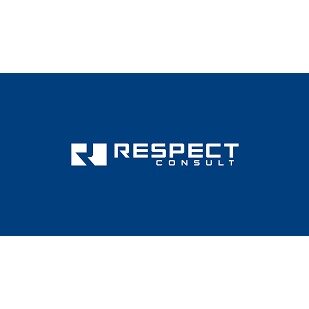Best Mortgage Lawyers in Plovdiv
Share your needs with us, get contacted by law firms.
Free. Takes 2 min.
Free Guide to Hiring a Real Estate Lawyer
List of the best lawyers in Plovdiv, Bulgaria
About Mortgage Law in Plovdiv, Bulgaria
Mortgage law in Plovdiv, Bulgaria governs the legal aspects of mortgage agreements. A mortgage is a loan used to finance the purchase of real estate, where the property acts as collateral for the loan. It is important to understand the local laws surrounding mortgages to protect your rights and interests when entering into such agreements.
Why You May Need a Lawyer
While not always necessary, there are certain situations where seeking legal help in mortgage matters is highly recommended:
- When drafting or reviewing mortgage agreements
- In case of disputes or conflicts with the mortgage lender
- When facing foreclosure or other legal actions related to your mortgage
- If you believe you have been a victim of mortgage fraud or predatory lending
- When considering refinancing or modifying your existing mortgage
Local Laws Overview
Here are some key aspects of local laws in Plovdiv, Bulgaria that are particularly relevant to mortgages:
- Mortgages must be registered with the Land Registry to ensure their validity.
- Bulgarian law generally allows for both fixed and floating interest rates on mortgages. It is important to carefully review the terms of the loan agreement.
- Foreclosure proceedings in Bulgaria can be complex and involve several stages. It is crucial to understand the process and your rights during such situations.
- Prepayment penalties may apply if you decide to repay your mortgage earlier than the agreed-upon term. Make sure to review any prepayment clauses in your loan agreement.
Frequently Asked Questions
1. Can foreigners obtain a mortgage in Plovdiv, Bulgaria?
Yes, foreigners can generally obtain mortgages in Plovdiv, Bulgaria, subject to certain conditions. It is recommended to seek legal advice to understand the specific requirements and limitations.
2. What documents are typically required for a mortgage application?
Common documents required for a mortgage application in Plovdiv, Bulgaria include proof of identity, proof of income, property valuation report, and proof of ownership of the property.
3. What are the costs associated with getting a mortgage in Plovdiv, Bulgaria?
In addition to the loan amount, there are various costs associated with getting a mortgage in Plovdiv, Bulgaria. These may include loan origination fees, appraisal fees, notary fees, and registration fees. It is important to consider and budget for these costs.
4. What is the maximum loan-to-value ratio allowed in Plovdiv, Bulgaria?
The maximum loan-to-value ratio allowed can vary depending on various factors. It is advisable to consult with a lawyer or mortgage professional to determine the specific loan-to-value ratio for your situation.
5. What happens if I default on my mortgage payments?
If you default on your mortgage payments, the lender may initiate foreclosure proceedings. Foreclosure can result in the loss of your property. It is crucial to seek legal assistance if you find yourself in this situation to explore any potential options available to you.
Additional Resources
For further information and resources related to mortgages in Plovdiv, Bulgaria, consider reaching out to the following:
- Public Register Agency in Plovdiv: They can provide information on the registration process and requirements for mortgages.
- National Association of Mortgage Lenders: A professional organization that can provide guidance and information about mortgages in Bulgaria.
Next Steps
If you need legal assistance in mortgage matters in Plovdiv, Bulgaria:
- Research and identify experienced mortgage lawyers in Plovdiv.
- Arrange a consultation to discuss your specific situation and concerns.
- Provide all relevant documentation and information to the lawyer.
- Listen to the lawyer's advice and guidance to make informed decisions.
- Work closely with the lawyer throughout the process to protect your interests.
Lawzana helps you find the best lawyers and law firms in Plovdiv through a curated and pre-screened list of qualified legal professionals. Our platform offers rankings and detailed profiles of attorneys and law firms, allowing you to compare based on practice areas, including Mortgage, experience, and client feedback.
Each profile includes a description of the firm's areas of practice, client reviews, team members and partners, year of establishment, spoken languages, office locations, contact information, social media presence, and any published articles or resources. Most firms on our platform speak English and are experienced in both local and international legal matters.
Get a quote from top-rated law firms in Plovdiv, Bulgaria — quickly, securely, and without unnecessary hassle.
Disclaimer:
The information provided on this page is for general informational purposes only and does not constitute legal advice. While we strive to ensure the accuracy and relevance of the content, legal information may change over time, and interpretations of the law can vary. You should always consult with a qualified legal professional for advice specific to your situation.
We disclaim all liability for actions taken or not taken based on the content of this page. If you believe any information is incorrect or outdated, please contact us, and we will review and update it where appropriate.















